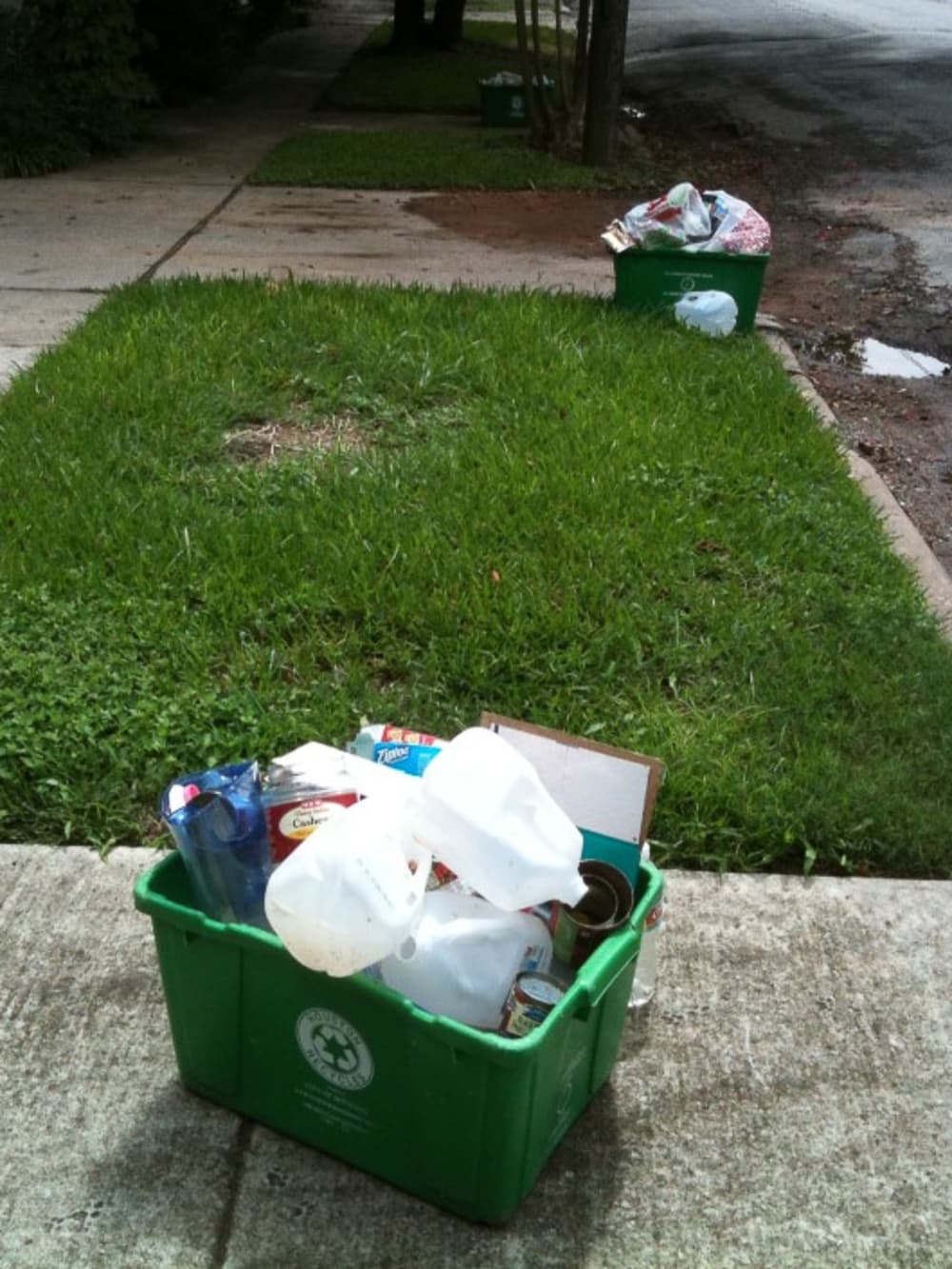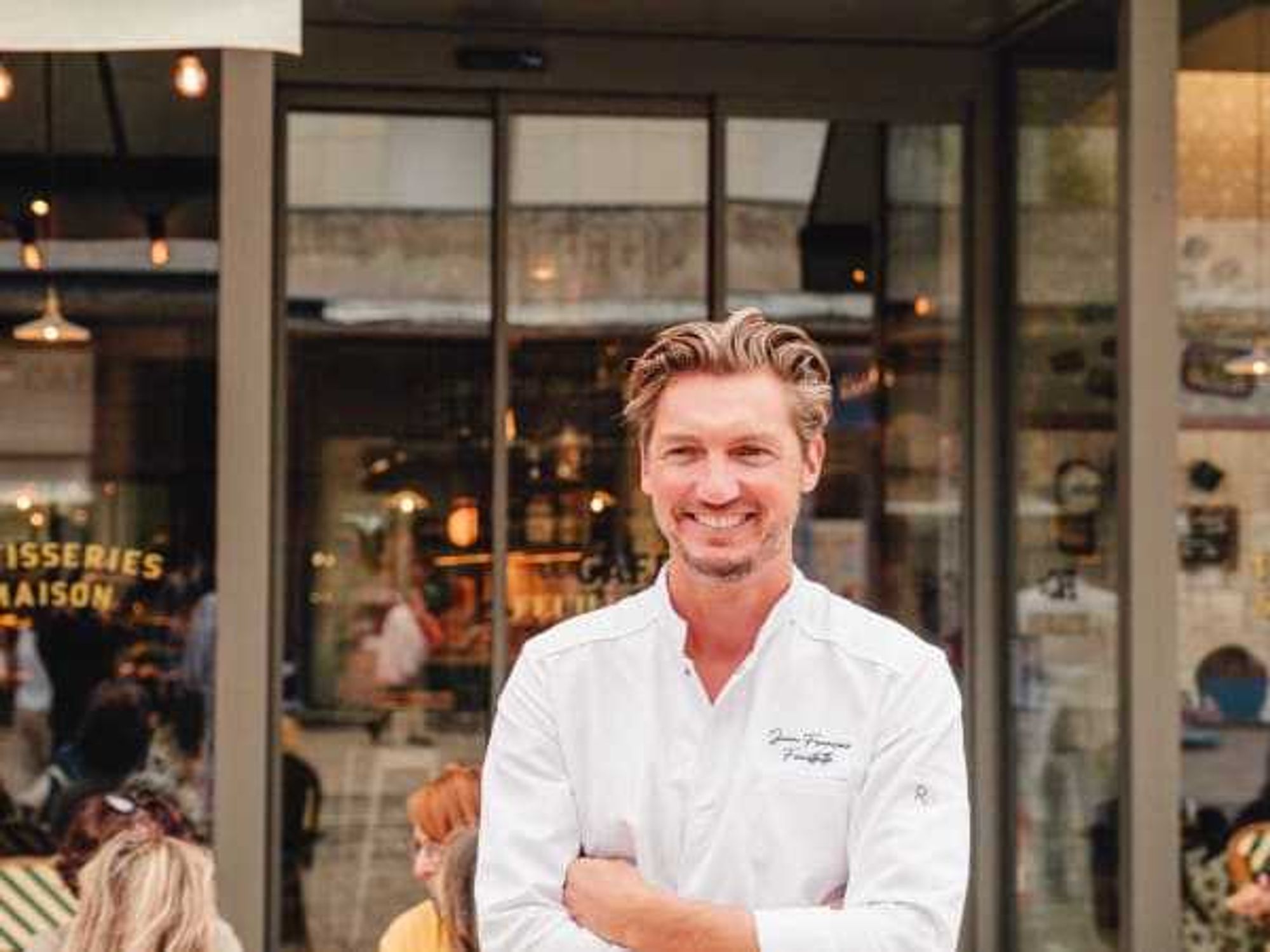Bins not buckets
City tries to completely overhaul its recycling program — for now, it's rewardcoupons for some
 The city's new curbside recycling program is powered by a fleet of hydraulichybrid trucks.
The city's new curbside recycling program is powered by a fleet of hydraulichybrid trucks. Harry J. Hayes, director, City of Houston Solid Waste Management DepartmentPhoto via City of Houston Solid Waste Management Department/Facebook
Harry J. Hayes, director, City of Houston Solid Waste Management DepartmentPhoto via City of Houston Solid Waste Management Department/Facebook Founded in 2004, New York-based Recyclebank current serves more than 100,000households in Houston.Photo via Recyclebank/Facebook
Founded in 2004, New York-based Recyclebank current serves more than 100,000households in Houston.Photo via Recyclebank/Facebook Goodbye, old friend... the mini green bin's days are numbered as its 96-galloncousin rolls across the city.Photo by Clifford Pugh
Goodbye, old friend... the mini green bin's days are numbered as its 96-galloncousin rolls across the city.Photo by Clifford Pugh
For most Houstonians, recycling means dragging out the ol' 18-gallon green bucket that takes only paper, plastic and aluminum. Glass must be taken to a separate drop-off center, or for those less inclined, simply tossed into the trash.
Thanks to a partnership with eco-rewards company Recyclebank, however, a new and improved option is making its way though the city.
Households in pilot neighborhoods like Sharpstown, Woodland Heights, Westbury and Garden Oaks have had their recycle buckets replaced with a green-colored version of the familiar black garbage bin that accepts paper, plastic, aluminum and glass.
Working with Recyclebank, the city of Houston avoids using a single tax dollar towards its curbsid e initiative.
But get this . . . Recyclebank tallies the weight of the green bin, converting the data into points customers can redeem through the company's website for coupons to restaurants and stores like Jenni's Noodle House, Niko Niko's and Whole Earth.
Working with Recyclebank, which topped the Wall Street Journal's clean-tech companies list in 2011, the city of Houston avoids using a single tax dollar towards its curbside initiative. The money from the recyclables pays for the company's monthly fees to haul and sort materials.
"All of this stuff has value," Harry Hayes, director of Houston Solid Waste Management, told CultureMap. "This program is about finding a way to drain these valuable resources from our waste collection into a way the benefits the whole community."
As the program expands, Hayes says the city will work with Recyclebank to offer a wider range of rewards that includes discounts on more basic goods like food staples and gasoline.
"We want the program to appeal to as many new residents as possible," Fred Hannon, vice president of operations for Recyclebank's southeast region, said in a phone interview. "We'll study the demographics of each additional Houston neighborhood very carefully. Almost as if each area will be an entirely new roll out."
In January 2011, according to the Houston Chronicle, mayor Annise Parker rejected Hayes' proposal to allow the curbside recycling to reach 100 percent of the city for a $3.50 monthly fee to customers.
In the future, however, the Solid Waste Department hopes to secure $21 million in public funding to purchase the green bins and larger fleet of hybrid trucks needed to realize a citywide Recyclebank effort.
"You really should recycle," Hayes said. "It just doesn't make sense to just throw away all that potential value."

 Coming soon to Missouri City.
Coming soon to Missouri City.